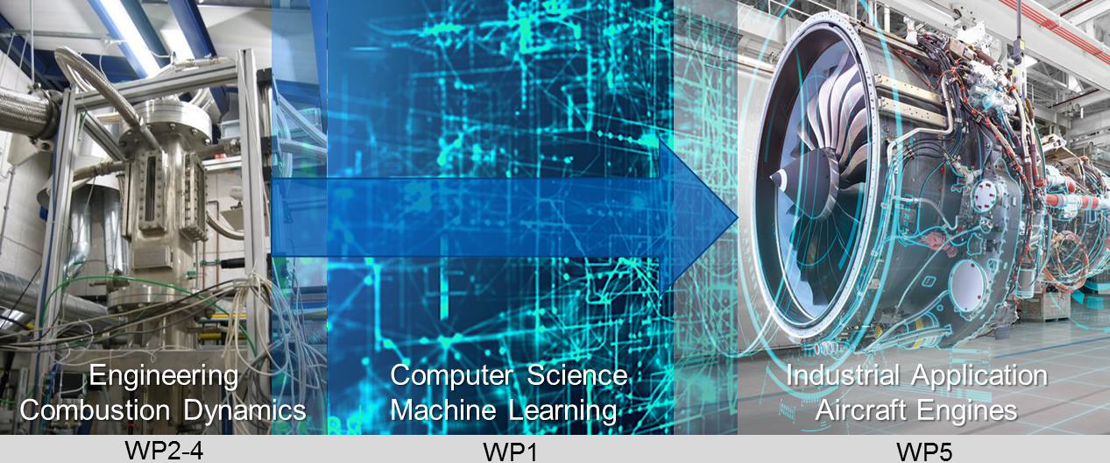Scientific Objectives
- Develop methods that can predict and control thermoacoustics from TRL 2 to TRL 9.
- Apply machine learning algorithms to improve models to predict thermoacoustics in aircraft engines and derive combustor hardware design implications from the predictions.
- Devise and adapt machine learning algorithms to thermoacoustic experiments at the laboratory scale and to industrial scale for aircraft engines.
- Advance acoustic and combustion models to capture the interaction of acoustics with liquid fuel sprays with high accuracy.
- Generate a sophisticated experimental data base for thermoacoustics of liquid fuel combustion for validation of the methods developed in MAGISTER.

